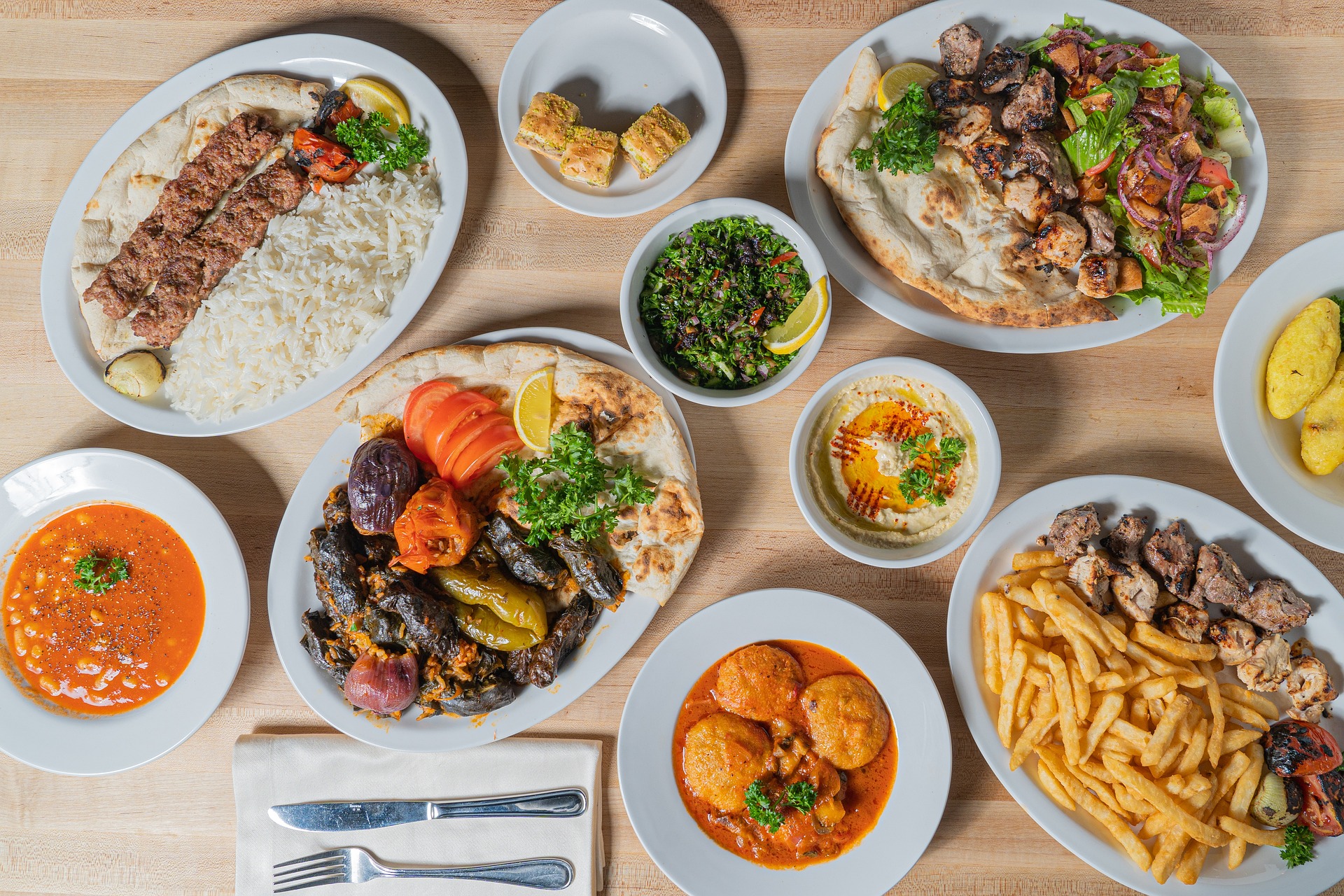The Magic of Middle Eastern Cuisine: A Taste Exploration
Middle Eastern cuisine is more than just a food trend; it's a flavorful journey through history and culture. From fragrant spices to diverse textures, it offers a culinary experience that's both exotic and comforting. Read below to explore the delightful flavors and culinary traditions of the Middle East.

The Spice Trail
Middle Eastern cuisine is known for its bold spices, which add depth and variety to every dish. Staples like cumin, coriander, turmeric, and cinnamon lend a warm, earthy flavor while sumac, za’atar, and saffron add a tangy or floral note. These spices not only elevate the taste but also offer numerous health benefits.
Mezze: The Art of Sharing
Mezze, a selection of small dishes served at the start of a meal, is a major part of the Middle Eastern dining experience. From creamy hummus and smoky baba ganoush to stuffed vine leaves and spicy falafel, each dish is a taste sensation on its own. The idea of sharing food enhances the communal dining experience, fostering a sense of unity and camaraderie.
Grains and Legumes: A Staple Diet
Grains like bulgur wheat, couscous, and freekeh, along with legumes like lentils and chickpeas, form the backbone of Middle Eastern cuisine. They are used in everything from salads and soups to hearty mains, providing a healthy dose of fiber and protein. The popularity of these ingredients in Western diets is a testament to their versatility and nutritional value.
Flatbreads: The Perfect Accompaniment
No Middle Eastern meal is complete without flatbread. Whether it’s the thin, soft pita or the crisp, bubbly lavash, these breads are perfect for scooping up dips, wrapping around kebabs, or simply enjoying with a drizzle of olive oil. Making these breads at home can be a fun and rewarding culinary project.
Sweets: A Grand Finale
Middle Eastern desserts are a delightful end to any meal. Popular choices include baklava, a pastry made with layers of thin dough filled with chopped nuts and sweetened with honey, and kunafa, a cheese pastry soaked in sweet syrup. These desserts are a testament to the region’s love for complex flavors and textures.
Useful Tips and Facts:
- Middle Eastern cuisine is not only delicious but also healthy, thanks to its focus on vegetables, lean proteins, and heart-healthy fats.
- Many Middle Eastern dishes are naturally vegan or vegetarian, making it a great cuisine for those following plant-based diets.
- Yogurt and pickles often accompany meals, aiding digestion and adding a refreshing contrast to richer dishes.
In conclusion, Middle Eastern cuisine is a rich tapestry of flavors and traditions. It’s a cuisine that tells a story, celebrates community, and nourishes both body and soul. Whether you’re a seasoned foodie or a culinary novice, exploring these flavors can be a delightful adventure. So why not embark on this culinary journey and experience the magic of Middle Eastern cuisine for yourself?




